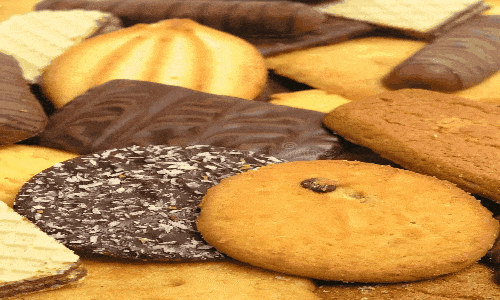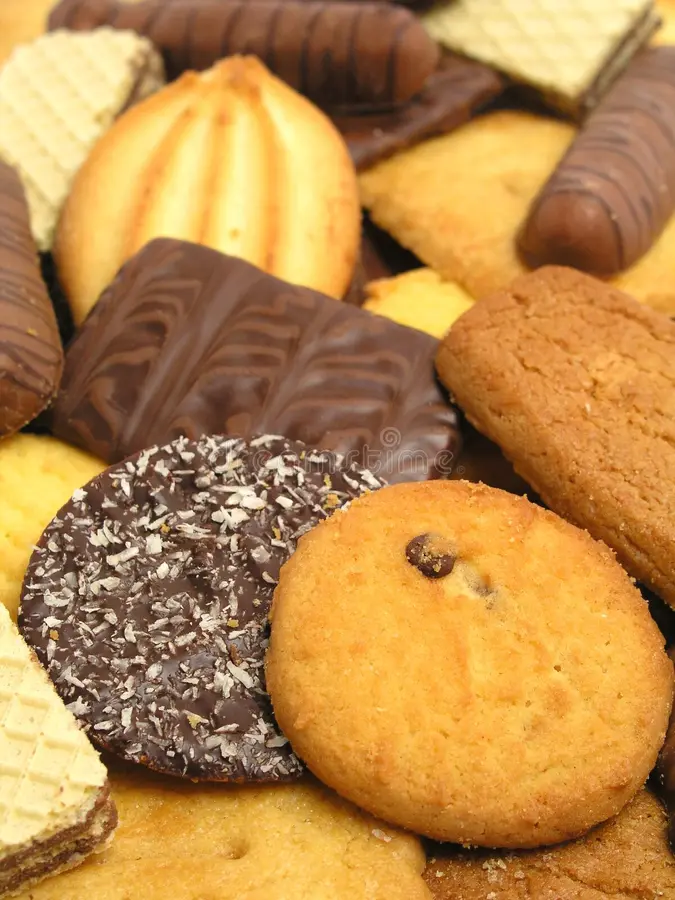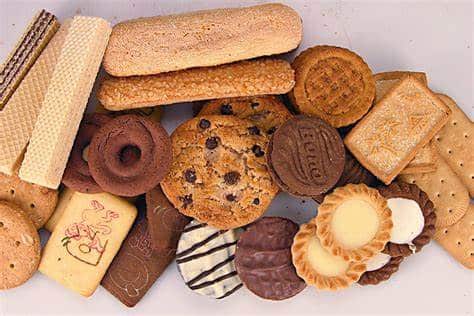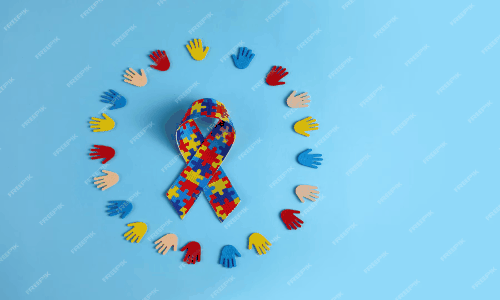Adverts
When it comes to “biscuit or cookie,” there is no shortage of passionate opinions. Some people firmly defend that the correct name is “biscoito,” while others insist that “bolacha” sounds much more authentic.
In many conversations, just one person touching on this topic is enough to provoke smiles and lively comments.
Adverts
But what is really behind this popular discussion in Brazil? Is it just a joke between friends, or is there some historical and cultural context that justifies the preference for one term or another?

Throughout this article, we will explore this true language phenomenon in a light and informative way, addressing the particularities of each Brazilian region, the curious stories that surround the debate and, of course, bringing tasty examples that illustrate the richness of our popular cuisine 🍪.
Adverts
To understand why so many people defend their favorite term so fervently, it’s essential to know a little about regional differences. In some places, you’ll hear “biscoito” on every street corner.
In others, the word “cookie” appears naturally on supermarket shelves and in casual everyday conversations.
More than just a question of semantics, these preferences are an important part of culture and reflect the way different communities deal with linguistic heritage, table customs and even social behavior.
Recommended Articles:
So even though the discussion may seem fun or lighthearted, it also points to something bigger: our cultural identity.
In addition to understanding where each term predominates, another point we will address is the history of “biscuit” and “cookie”. After all, how did these words appear in our vocabulary? There are records that show the use of “biscuit” in very ancient contexts, linked to European traditions.
“Bolacha” may have gained popularity in some regions of the country due to local influences or even due to immigrants who brought specific terms. These origins are often passed down from generation to generation, and knowing these details makes the conversation even more enjoyable.
Thus, talking about cookies or biscuits also means opening up space to delve into historical facts that transcend supermarket shelves.
But don’t worry: this won’t be a technical read, full of complicated terms. The aim is to take you on a relaxed journey through the flavors and stories that permeate the discussion.
We will also see how the “biscuit or cracker” debate relates to the popular cuisine of different regions, touching on curiosities such as the shape of these delicacies, the variations in recipe and the way each place serves this beloved snack.
Whether it's an afternoon coffee table filled with treats or a family gathering for tea, it's impossible to ignore that these foods are a prominent part of our daily lives.

Plurality of expressions and cultural value
When we talk about Brazilian culture, it is inevitable to notice the plurality of expressions and habits. And this variety is not limited to accents or typical dishes, but also to the way we name basic products. In the case of “biscuit or cracker”, what is at stake is precisely this linguistic diversity that makes up our country. In some regions, calling something “biscuit” seems the most natural thing in the world. In others, any mention of “biscuit” elicits a strange look or, at the very least, a slight smile from those who are used to saying “bolacha”.
In this article, we will discuss why this apparent divergence can be seen as a positive thing. After all, expressing ourselves in different ways reinforces our identity and shows how local communities keep their traditions alive. At the same time, understanding these differences allows us to see how a small bakery item can say a lot about who we are and where we come from. The “biscuit or cookie” functions almost as a symbol of how the Portuguese language in Brazil is rich and varied, embracing indigenous, African, European and many other influences that have shaped us as a nation. This linguistic complexity makes each word choice full of value and meaning.
Another important point is to realize that, although the question may be playful and funny, it also reveals how small differences in vocabulary can influence daily communication. Does the food industry invest in a certain label thinking about attracting consumers from a specific region? How does this affect packaging and marketing? And how do large urban centers, which receive people from all over the country, end up bringing together multiple ways of referring to the same product? These questions show that there is a practical side to the debate, as it affects consumer relations, regional advertising and even the way families pass on home traditions from generation to generation.
Furthermore, we will not leave out some interesting points that arise when we analyze the nutritional content of these wonders. Although this text does not delve into health issues in detail, it is worth touching on the subject, since each cookie or biscuit recipe tends to be different, influenced by ingredients common in a certain place. Sometimes, the greater amount of sugar or the addition of creamy fillings makes “stuffed cookies” – or “stuffed cookies” – be perceived in an even more specific way. There are those who love the crunchy texture, those who prefer the more neutral flavor and even those who prioritize healthier options, free from excess coloring. All of this fits into our conversation about regional peculiarities and how the relationship with food is unique and full of nuances 🍩.

Taste routes and affective memory
There’s no denying that these simple products awaken fond memories in many of us. The sound of opening a packet of cookies, the characteristic smell that fills the room and the first bite that brings back memories of childhood are details that blend into our personal history. Whether it’s an afternoon on vacation at our grandparents’ house or a coffee at a bakery before work, we always find time for this practical and comforting snack. In the following reading, you’ll discover how these fond memories influence our linguistic and gastronomic choices. And, of course, there’ll still be room to enjoy the stories of those who have found themselves passionately debating which term is “the right one”.
So, get ready to dive into a narrative that combines flavor, history and a bit of humor when talking about “biscuits or cookies”. We will travel through the different regions of Brazil, report curious situations, analyze the origin of these words and, as a bonus, bring reflections on cultural identities. You will be surprised by how many nuances can arise from a seemingly simple subject. It is a direct conversation, full of data and curiosities, but always with room for that touch of empathy and welcome that makes you feel comfortable while reading 😊.
In the following topics, we will delve deeper into these points, showing how each state – and sometimes each neighborhood! – can have its own unique way of enjoying these delicacies. We will also see how big brands operate in this arena, adapting communication strategies according to local preferences. And we cannot forget foreign influences: immigrants from different parts of the world brought their own variations, which contributed to the gastronomic and linguistic richness that we have today. By the end, we hope that you feel even more connected to this discussion, understanding that, far beyond “cookies or biscuits”, we are talking about a celebration of the differences that make us so unique.
Are you ready to discover the stories, traditions and curiosities surrounding the way this beloved product is called? Next, you will embark on a journey that passes through the North, Northeast, Central-West, Southeast and South of Brazil. We will not only uncover the particularities of each region, but also reflect on how contemporary life and the advancement of social networks have transformed this discussion into a true cultural phenomenon. After all, who would have thought that an apparent joke could reveal so much about the way we live with our own language and our way of sharing affection at the table? Stay tuned: this is just the beginning of a delightful journey full of discoveries.

Conclusion
We have reached the end of our conversation, and it is with deep affection and respect that I bring you this conclusion. Throughout the article, we have discussed the various dimensions of integral well-being, exploring how our emotional, physical and mental states are intrinsically connected. We have addressed the importance of identifying signs of imbalance, the relevance of seeking professional help when necessary, as well as simple techniques and strategies that can be adopted in everyday life to promote health and quality of life. With a focus on welcoming and respecting individualities, we have reviewed aspects involving disease prevention, strengthening the immune system, promoting mental health and valuing our own history and life context.
In short, it is clear that health care needs to go far beyond specific treatments: it requires constant attention to the needs of our body and mind. For example, we emphasize the importance of a balanced diet, which is rich in nutrients and capable of providing us with energy for daily activities. We also talk about the value of quality sleep, as it not only helps us rebalance organic functions, but also plays a fundamental role in regulating emotions and controlling stress. It is worth noting that maintaining a physical exercise routine, even if it is just walking or stretching, has a great impact on controlling anxiety and preventing cardiovascular problems, in addition to stimulating the production of substances that increase our sense of well-being.
Another highlight of this journey was the need to be aware of our feelings and emotions. When we talk about health and well-being, we cannot ignore the inner universe that inhabits us. It is essential to set aside time for self-care, practice activities that relax the mind and spirit, and remember that there is no shame or weakness in seeking professional help, whether from psychologists, psychiatrists or other mental health specialists. Sharing our experiences and seeking emotional and specialized support can be a turning point in the healing process, in the resurgence of our inner strength and in rediscovering everyday joy.
Year after year, science has been reinforcing the importance of integrating body and mind. In terms of practical results, recent research shows that, by developing mindfulness or meditation practices, for example, we can better regulate stress and anxiety levels that directly impact our immunity and disposition. By creating the habit of setting aside a few minutes a day to reflect on our goals and feelings, or simply to sit in silence and breathe deeply, we establish a stronger connection with our essence. This process of internalization allows us to perceive signs of exhaustion early on and helps us take action before more complicated situations arise.
Still on the subject of strategies for a more balanced life, it is worth emphasizing that small steps yield great results. Therefore, throughout the content, we emphasize the importance of starting small changes — such as exchanging some ultra-processed foods for more natural options, establishing more regular times to eat, sleep and wake up at similar times every day — and gradually expanding these care to all areas of life. If you are not a fan of the gym, it is worth considering activities that give you pleasure, such as dancing, practicing yoga, cycling or simply walking outdoors. And we cannot forget to mention the importance of interpersonal relationships: cultivating healthy bonds, having someone to count on and practicing empathy in everyday life considerably strengthen our “sense of support” and belonging.
At another point, we also discussed the possible challenges that arise along the way and how to deal with them in a compassionate manner. It is not always easy to change ingrained habits, nor is it simple to face head-on the emotional problems that we insist on ignoring. But, step by step, by learning to listen to and respect ourselves, we find the balance necessary to continue with the changes. Each person has their own pace, their own particularities and past experiences that have made them who they are today. There is no magic or immediate formula for well-being: rather, there is a continuous journey marked by attempts, successes, failures, adjustments and, above all, perseverance and self-love.
Paying attention to your body’s needs, feelings of exhaustion, and mental warning signs represents a great act of responsibility towards yourself. After all, we are not machines that just produce; we are human beings with a strong emotional baggage that needs recognition and validation. In my career as a nurse and writer, over more than 10 years, I have witnessed many people who underestimated or ignored signs of fatigue, deep sadness, or lack of motivation. They learned, perhaps too late, that all it would take was a delicate confrontation and a little professional support to regain their well-being. But it is never too late to do so. If today you want to take a closer look at yourself, know that this step is within your reach.
To deepen your knowledge, I recommend that you visit the updated guidelines and information of World Health Organization (WHO), because there you will find very rich materials on disease prevention and promotion of healthy habits for different stages of life. You can also consult the official website of the Ministry of Health in Brazil, where there are guidelines and active campaigns that can guide you in primary care, prevention and free health services. In addition, if you are interested in quick-read scientific content, the website of Harvard Health Publishing offers articles on well-being, nutrition and new research that can confirm or explain in more depth some of the points we discuss.
It is very important to remember that the journey towards balance does not have to be undertaken alone. Family, friends, health professionals and support groups can be essential pillars in this process. In times of challenge or doubt, seek guidance from those with expertise in the area, whether in nutrition, psychology or medicine. Do not underestimate the power of good advice or a friendly shoulder to cry on. Each exchange of experiences can awaken strength and insight, in addition to presenting us with new perspectives on life. The autonomy to make healthier choices is strengthened as we build our networks of affection and support.
Throughout these points, we’ve discussed how chronic stress can trigger issues ranging from insomnia to inflammatory diseases; we’ve observed how our busy schedules and the pressures of everyday life affect our mental clarity and mood; and we’ve learned that incorporating self-care practices—whether through taking mindful breaks at work or dedicating time to hobbies that bring us joy—can help us balance these intense demands. ☀️ I’ve made a point of emphasizing individuality and the importance of recognizing our limits, as each person responds uniquely to the environment they live in and the experiences that surround them.
This topic of health and well-being is not limited to superficial tips or something temporary: it is an ongoing construction that encompasses our identity, our values and the way we see the world. It is also essential to recognize that care is not something selfish, but rather a gesture of love that allows us to be whole to care for those we love and fulfill our daily responsibilities. Along the way, it is important to remember that prevention is always preferable to treatment: when we pay due attention to small signs and take precautions, we avoid major complications and cultivate a fuller life.
I hope that, throughout this reading, you have found insights, motivation and support to continue cultivating your comprehensive care. If this material has brought you any new insights or helped you remember practices that you had forgotten, take the opportunity to put them into practice right now, whether by scheduling an appointment with a health professional, exchanging foods, or inviting someone to go for a walk outdoors with you. The important thing is to start — or start again — giving yourself the care you deserve. Remember that every step, no matter how small, makes a difference and paves the way for broader improvements.
As I always like to emphasize, if you have any additional questions or would like to share your experiences, don't hesitate to leave a comment. I love reading the stories that come to me and turning them into inspiration for new content. ❤️ If what you learned here can help other people, share this text on your social networks and groups. Often, a simple word can make a difference in someone's life. May we, together, spread information and attitudes that promote health, self-love and empathy. Also, take the opportunity to tag that special person who needs an extra dose of encouragement or a gentle reminder that they are not alone.
Finally, I would like to thank you once again for your company in this reading. It was a pleasure to share a little of my experience as a nurse and writer, and I hope to continue contributing to your process of growth and well-being. I reiterate that taking care of your body and mind requires consistency, but the results are inspiring: more energy, better quality of life, less stress and greater recognition of our own value, points that, ultimately, can positively impact all spheres of our existence. If you have made it this far, I sincerely hope that you remain steadfast in your search for self-knowledge and comprehensive health. And when you need support, remember that there is a huge network of professionals and people around you ready to walk alongside you.
So, keep reminding yourself: you matter, your well-being matters, and there is always the possibility of starting over. May this content serve as a loving reminder that, even in the midst of obstacles, there are paths to flourishing. If something you read resonated with you in a special way, leave your impressions, questions, or experiences in the comments. Use the tools you have today to move forward, and allow yourself to discover more possibilities tomorrow. I thank you for your trust and presence, and I conclude by inviting you to take action now: talk to those you love, organize your schedule in a healthier way, and, above all, never underestimate the power that exists in the decision to live with more balance and serenity. Take care of yourself and share what you have learned, because each seed of information can become a beautiful garden full of life and hope. ✨




